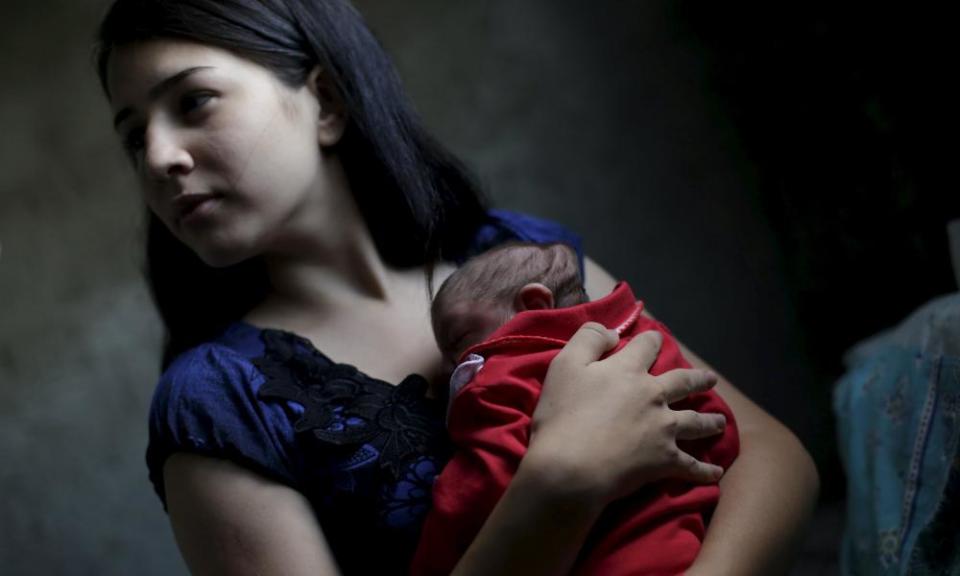Up to 1 in 20 babies born to mothers with Zika have birth defects, report says
Risk jumped to nearly one in 13 when mothers had virus in first trimester
Study comes as US prepares for mosquito season

As many as one in 20 babies born to mothers infected by Zika have birth defects, a new report from by US Centers for Disease Control and Prevention shows.
The risk jumped to nearly one in 13 when mothers were found to have Zika in the first trimester, the CDC stated.
The report on more than 2,500 pregnancies across five US territories found 122 babies, or 5%, were born with birth defects from 1 January 2016 to 25 April 2017. It is the largest study of the impact of Zika in America to date.
“The bottom line for women is Zika virus infection diagnosed during any trimester can lead to severe birth defects,” said Anne Schuchat, acting director of the CDC. “This is a very dangerous virus in the context of the pregnancy setting.”
The report comes as Americans in Gulf Coast states and US territories prepare for a summer mosquito season with the virus still spreading locally in some areas, including Puerto Rico.
“We can’t predict exactly how much Zika will be spreading these next several months, or in fact the next several years, but we know the vector is there,” said Schuchat, referring to territories such as Puerto Rico.
In the same report, the CDC changed how it reports cases of birth defects related to Zika in the US territories. After a reported dispute with Puerto Rico, the CDC will now release data all Zika-related birth defects collectively among five US territories. Officials refused to say how many birth defects were found in Puerto Rico specifically.
The US territories of Puerto Rico and the Virgin Islands are heavily dependent on tourism. Island officials blamed a major slump in the industry on news of the Zika virus. The head of the Puerto Rico Tourism Company, José Izquierdo II, told local news outlet Primera Hora that the island lost an estimated $254m in tourism in 2016.
Earlier this week, the territorial government of Puerto Rico declared the Zika epidemic “ended”, after new infections dropped from 8,000 to 10 per week. The CDC is still warning women who are pregnant not to travel to Puerto Rico.
A June report by Stat News indicated 38 cases of Zika-related birth defects on the island, despite known infections among 3,300 women. The Guardian attempted to confirm this number with the Puerto Rico department of health, but a spokesman said he did not have a current count of the number of Zika-related birth defects on the island.
By comparison, in the 50 states and Washington, 1,579 Zika-infected women gave birth to 72 children with defects.
“Zika hasn’t gone away and while the number of new cases has decreased the virus remains a concern for pregnant women living in the US territories,” said Shuchat. “We must continue preparing for another mosquito season while researchers seek more definitive prevention through vaccine development.”

